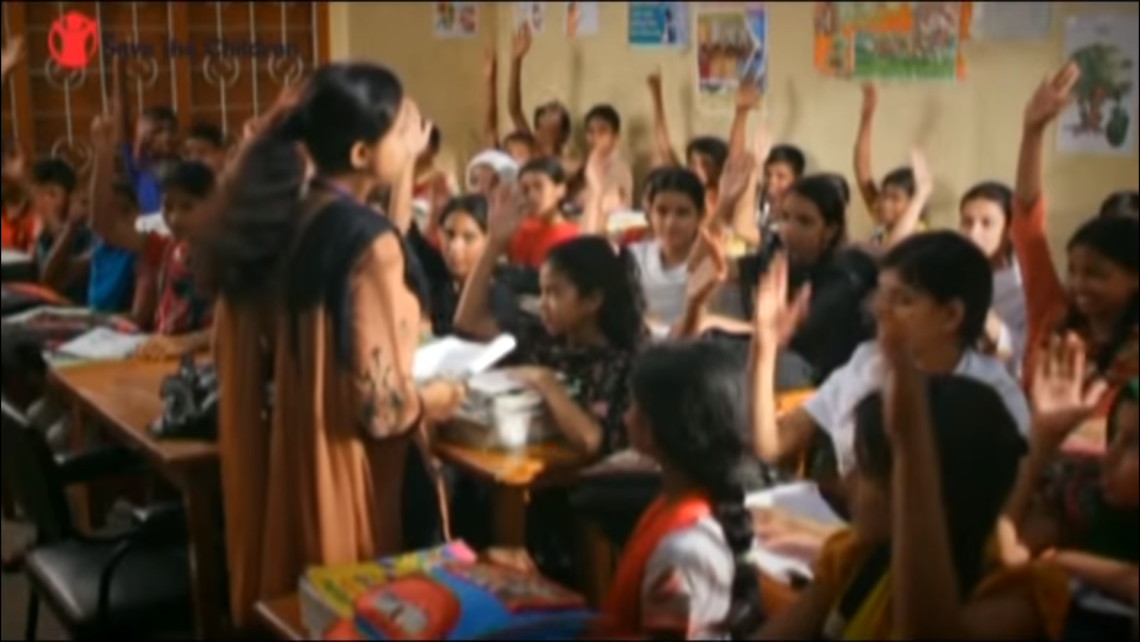Context: In Bangladesh, youth are faced with problems that affect their employability. Many of them are unable to enrol in higher learning due to inflexible and low-quality education, high costs and poor decision-making by parents. Most parents prefer their child to be working instead of focusing on education and many prefer the short-term reward of labour, while lacking awareness of the importance and value of education. Vocational skills provided to youths in Bangladesh are generally of poor quality, leading to gaps between training offered and the actual needs of the job. Most youth lack resources and opportunities to develop themselves outside of school.
Implementation of programme/ initiative: Considering the aforementioned context, Save the Children initiated the Education for Youth Empowerment (EYE) Program in 2012 to improve the situation of youth in Bangladesh. It had a total budget of USD 15 million and ran until 2017. The EYE Program was an all-inclusive education model for youth to get sufficient and good quality education, allowing them to acquire decent employment, and make decisions that affect their future, while advocating for their own rights. Through nine different projects, EYE aimed to provide basic education, and vocational and life skills training to the youths in Bangladesh, as well as help get vulnerable youth out of hazardous work so as to finish basic education. EYE also aimed to promote the rights of working children and youth, and increase decent employment opportunities that are age appropriate, often working with employers including training them.
Main challenges: The empowerment processes in the EYE Program focused mainly on building the education foundation of children and youth. This increased their employability and provided them with better work options. Though the programme focused on empowering youth to make decisions for their future, their ability to make decisions was very much influenced by societal norms as well as by adults, such as parents and employers.
Results achieved: In 2015, a total of 22,434 working children were provided basic education to grade 8 and 4,593 working children completed the PECE (Primary Education Completion Examination) with a pass rate of 93 per cent. Furthermore, 4,945 youth received vocational training in 27 trades, lasting 6 to 12 months, and 7,428 employers completed training for planning to improve their workplace. Through campaigns that were run by EYE, 11,272 children were informed about their work-related rights.
Moving Forward: The programme had potential to further increase education quality, work resources and the achievements of the children and vulnerable youth that are worked with. Such success was dependent on negotiating the norms of society and effectively working with the adults related to the programme. While the EYE Program provided training and educational sessions to parents, employers and community members to promote rights of children, to build on its success, would have been essential to advocate for and spread the awareness of the long-term benefits of education, along with the negative impacts of child labour.
Replicability: The EYE Program shows the importance of working closely with local schools and employers to provide educational sessions, trainings and workshops. The programme benefitted from youth groups frequently interacting with parents and employers to continuously remind them of the need to prevent and limit the violation of youth rights. By focusing on self-empowerment and the ability to make the best decision for their future, the programme allowed youth to be independent and less reliant on others, especially when making life-influencing decisions. These are all useful lessons for other initiatives to learn from.
Acknowledgement:
This good practice was kindly prepared by Ms. Megan Sim Wan Qi.
References:
http://www.lotteladegaard.mono.net/upl/11333/2016RBToolkitPart01W205xH297s114og7374WEB.pdf
https://archive.thedailystar.net/suppliments/2012/child_domestic_workers_convention/child_rights.htm
https://bangladesh.savethechildren.net/eye-program
https://www.youtube.com/watch?v=2YsyOHPyoyE
Project Details
Date: October 16, 2019
